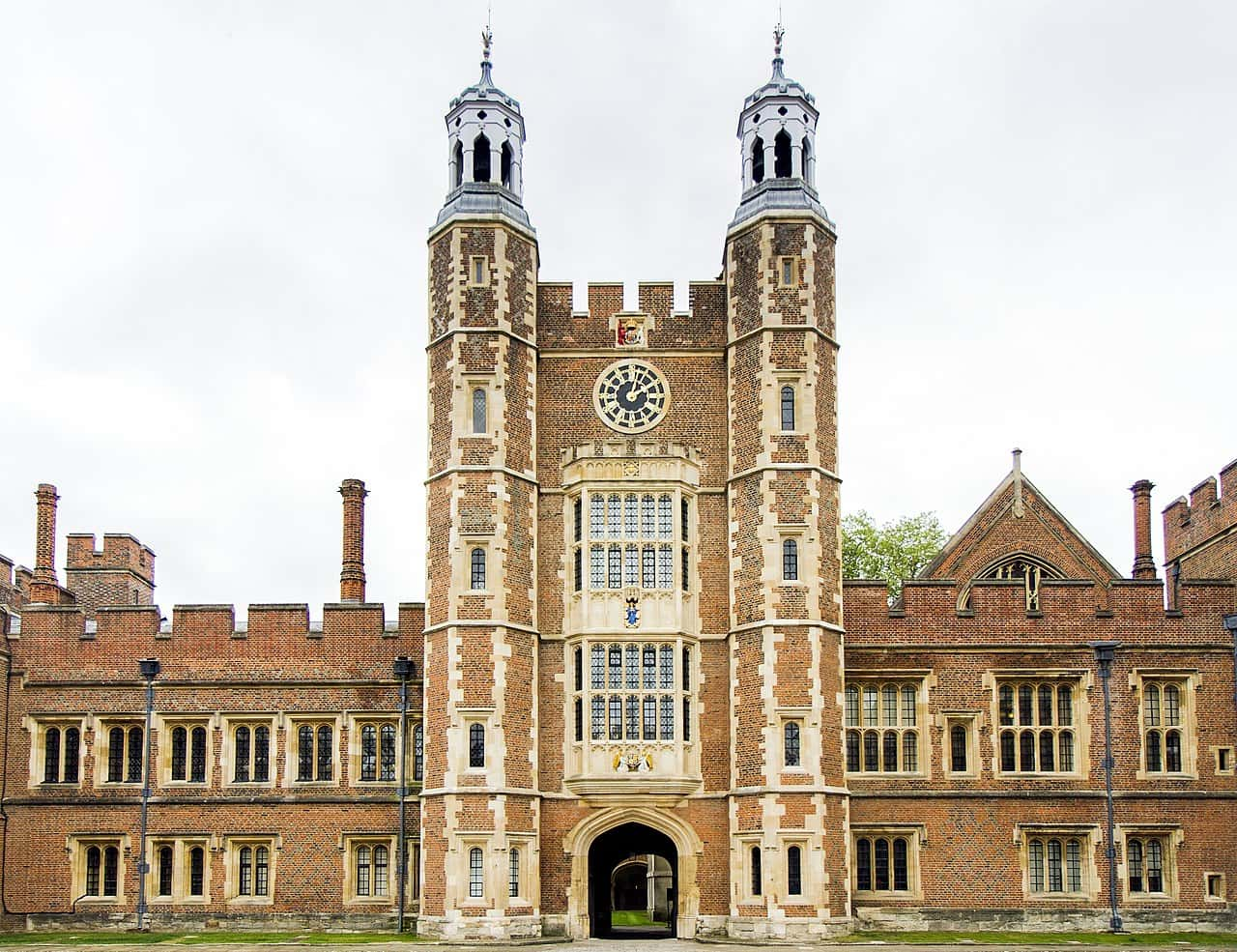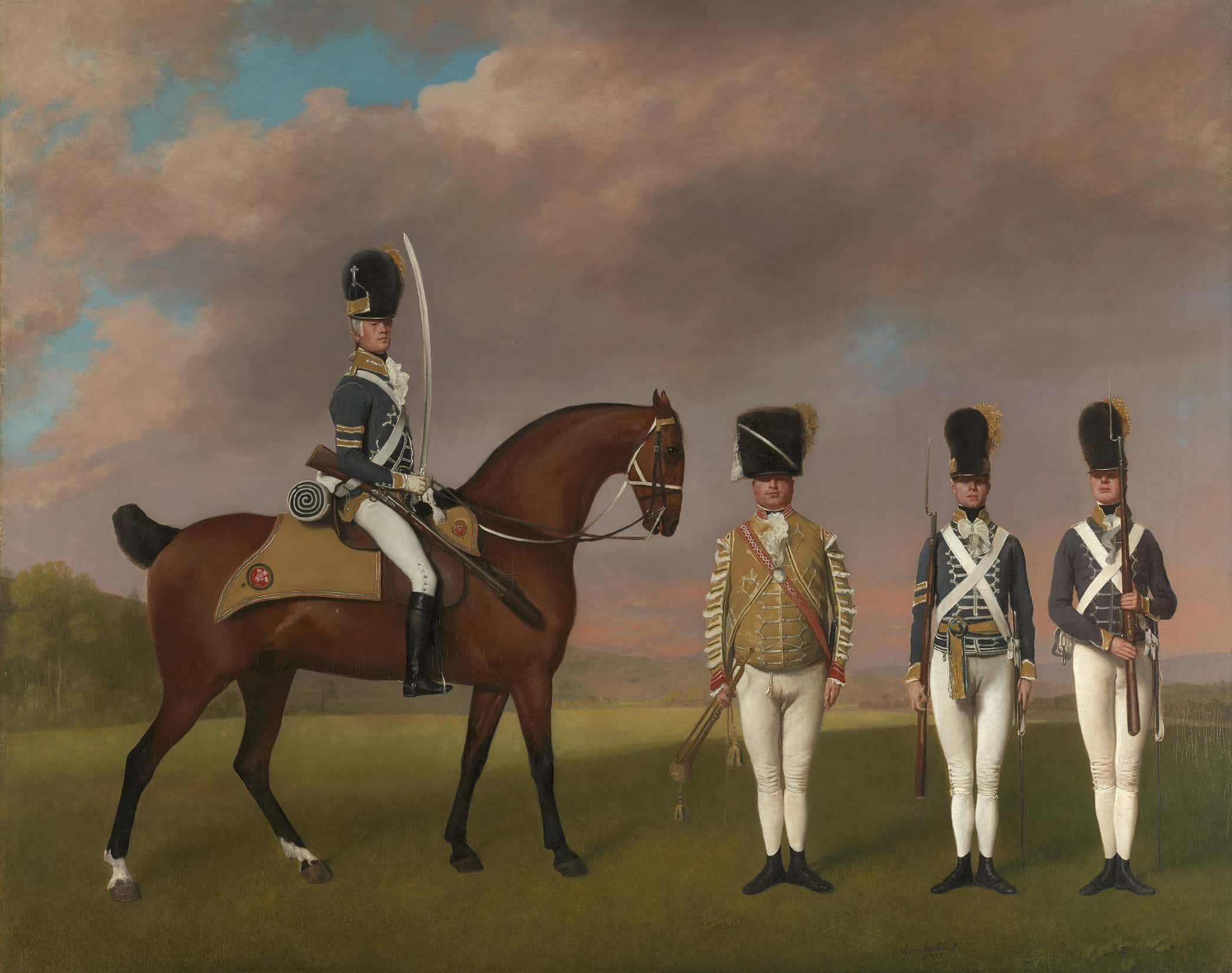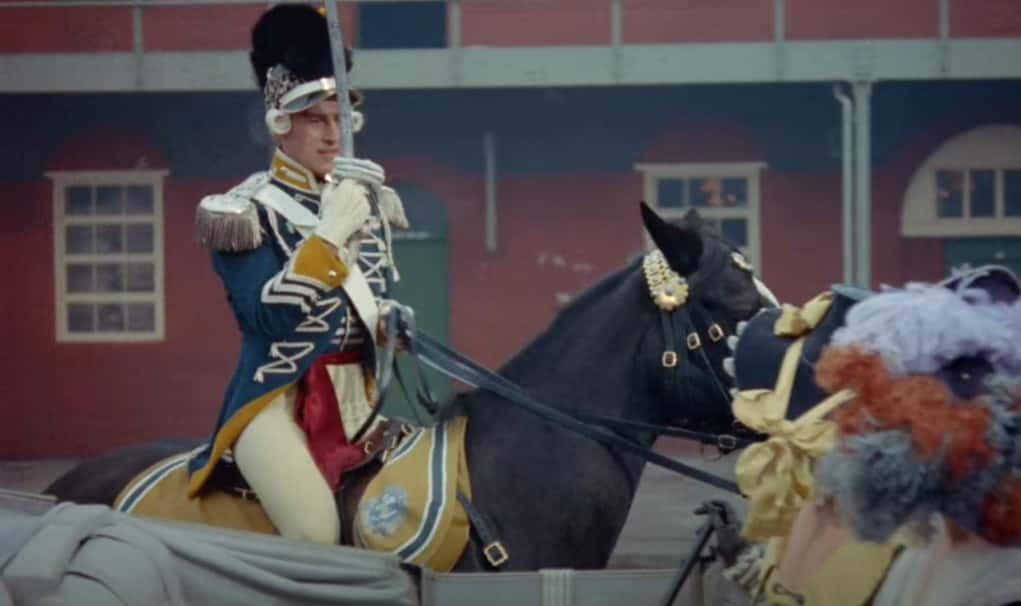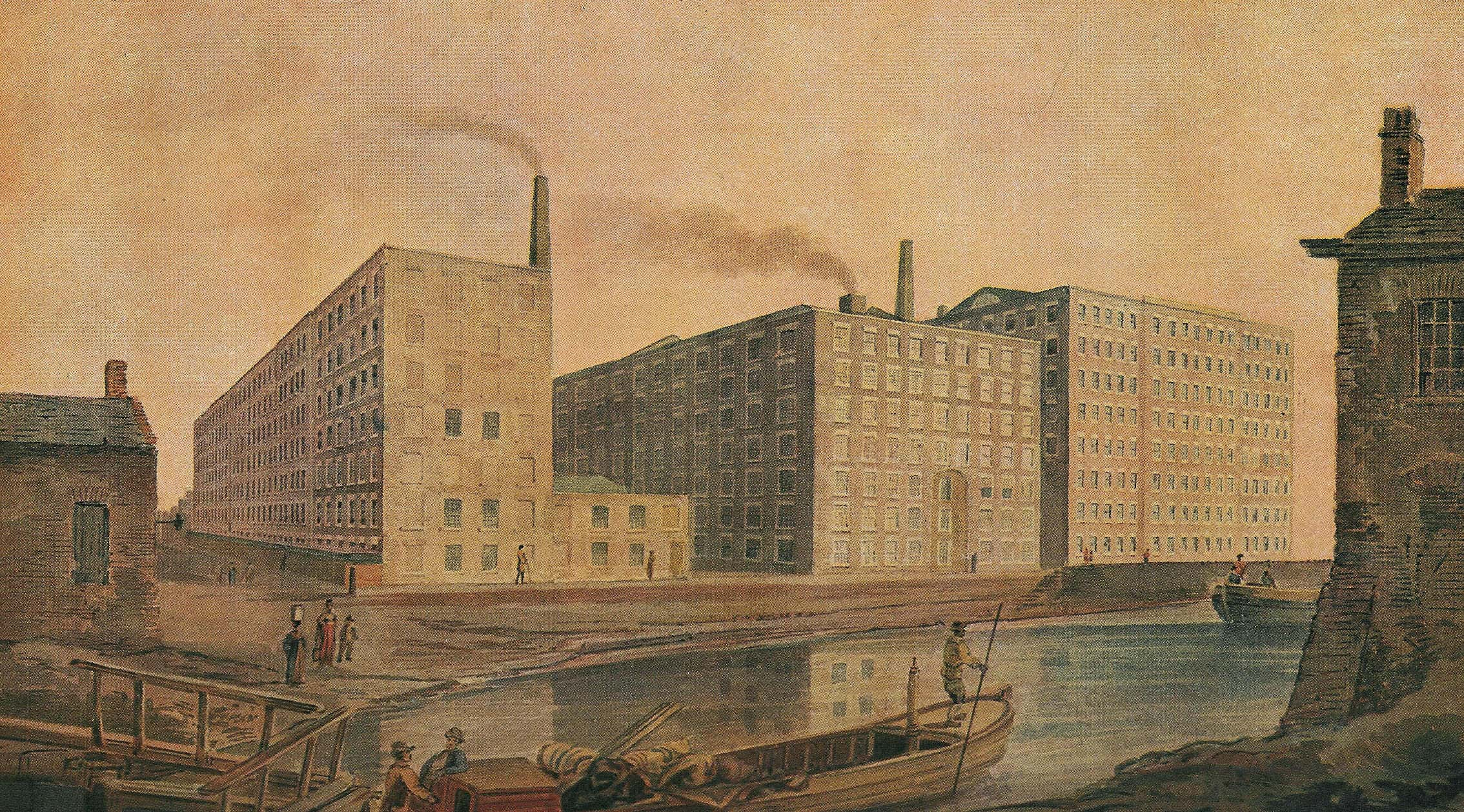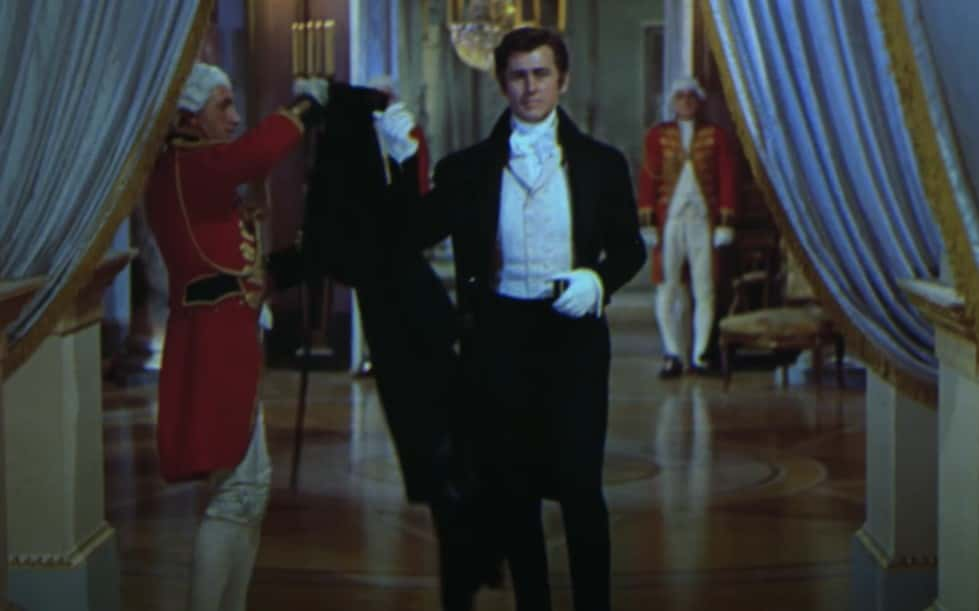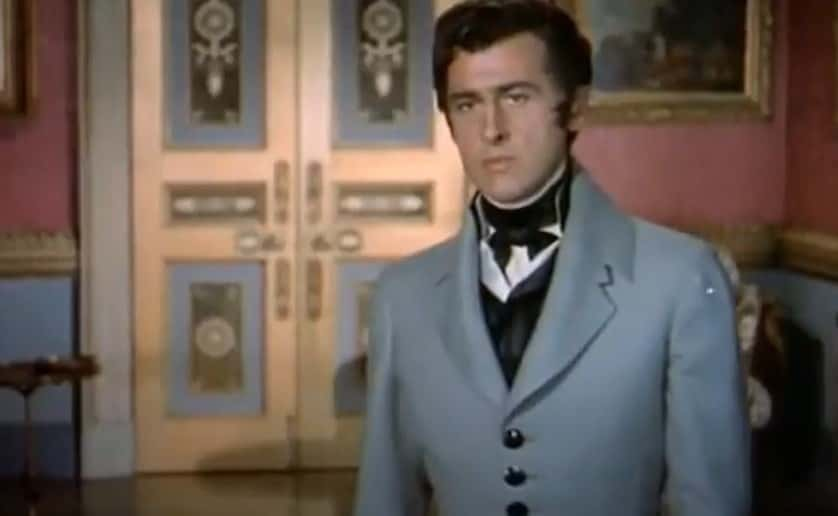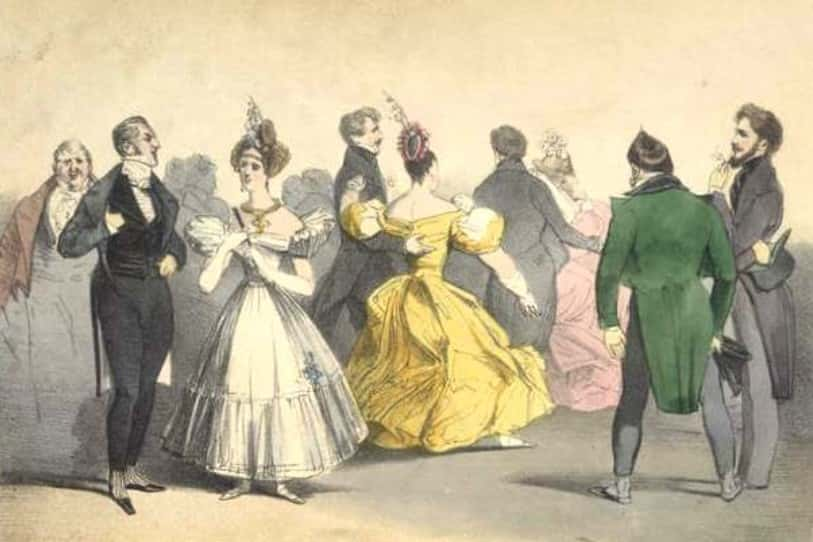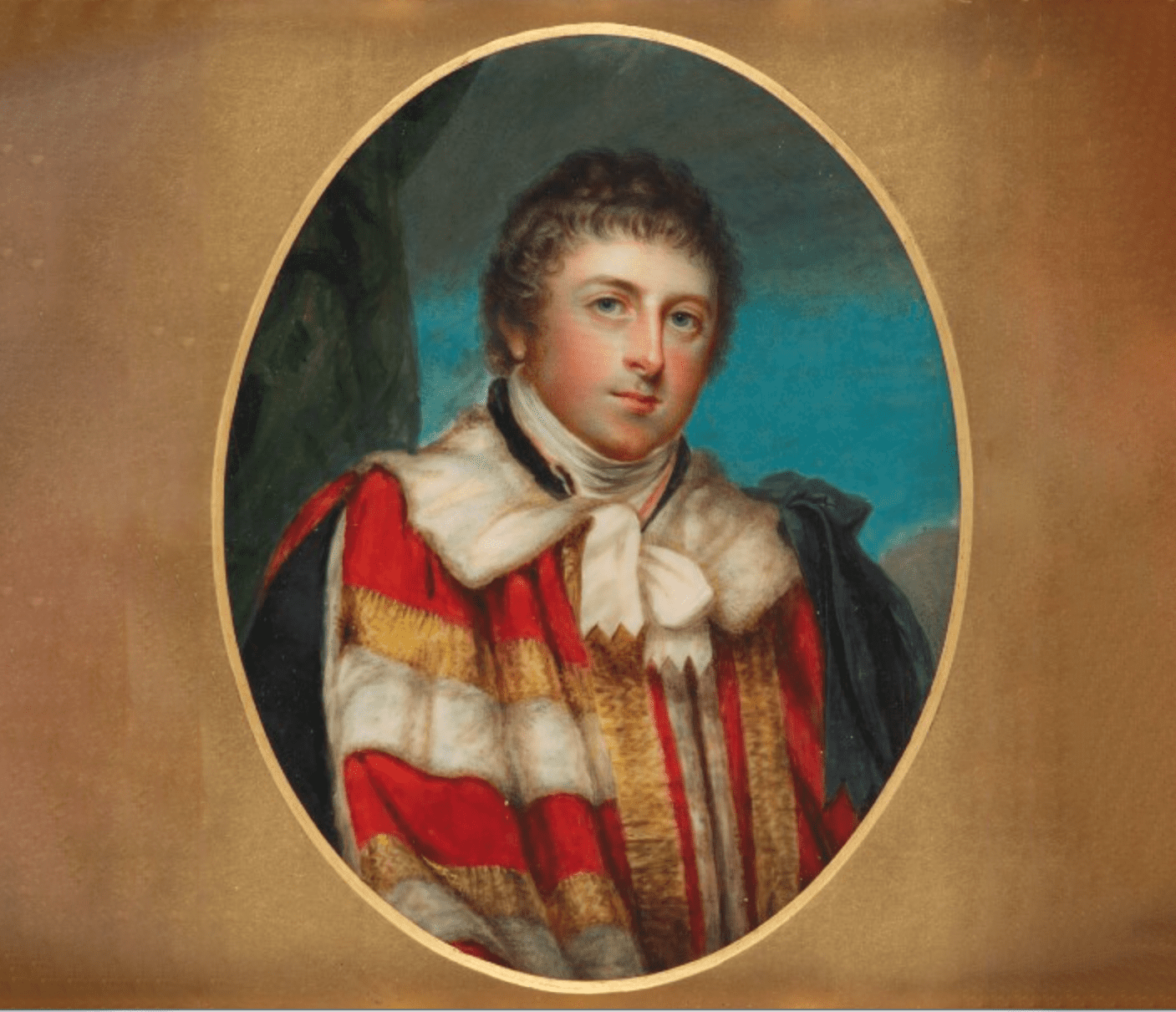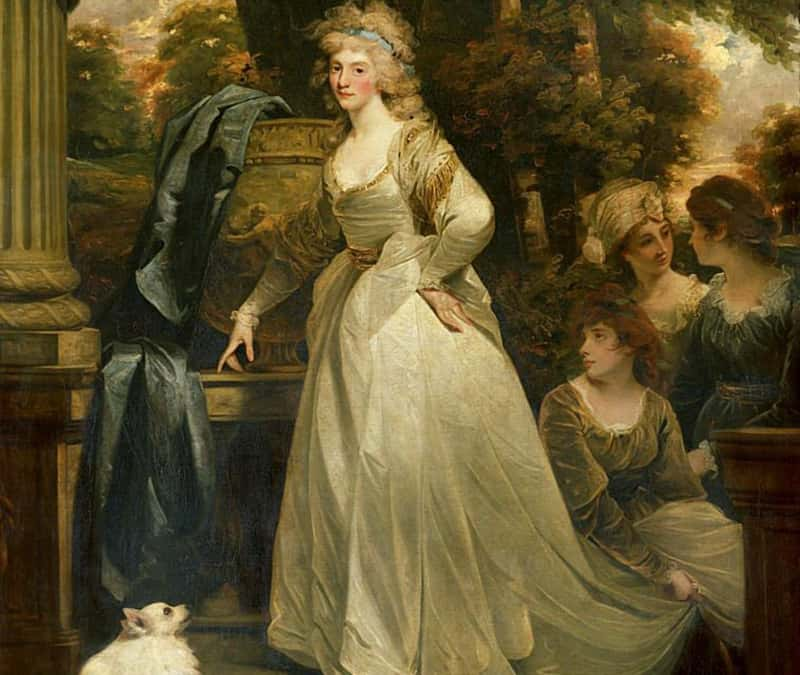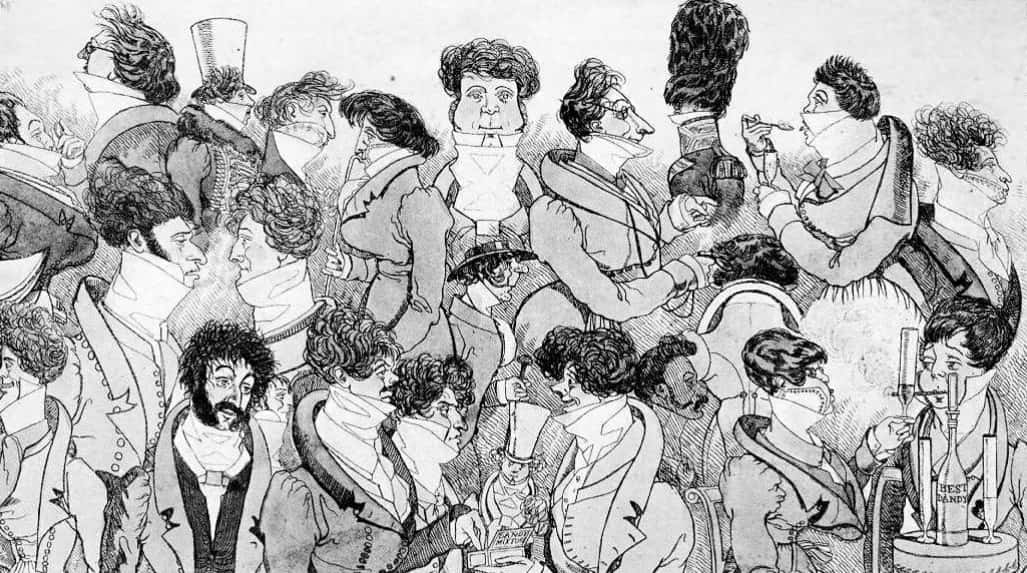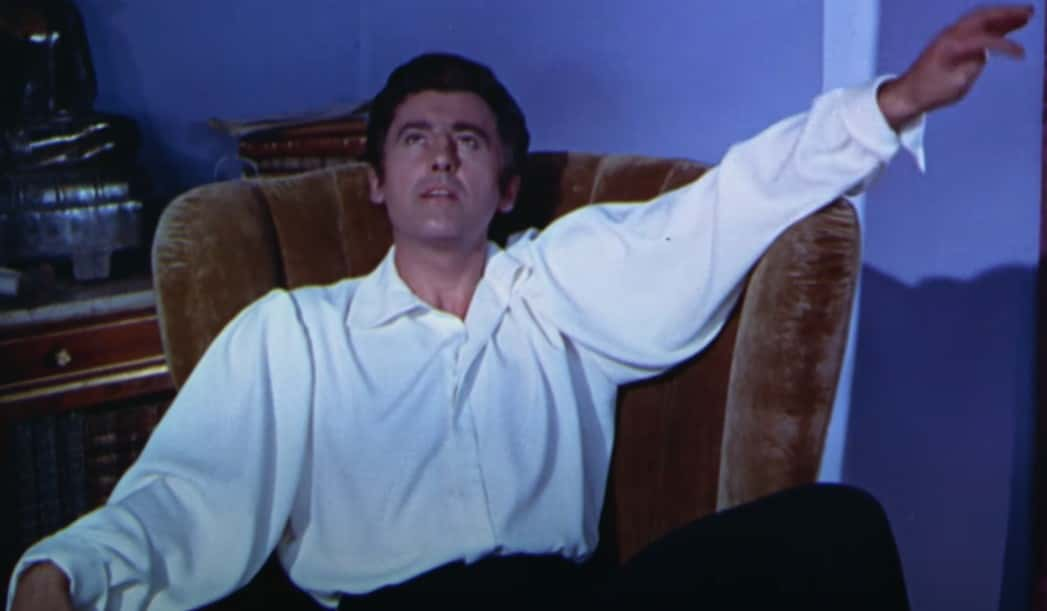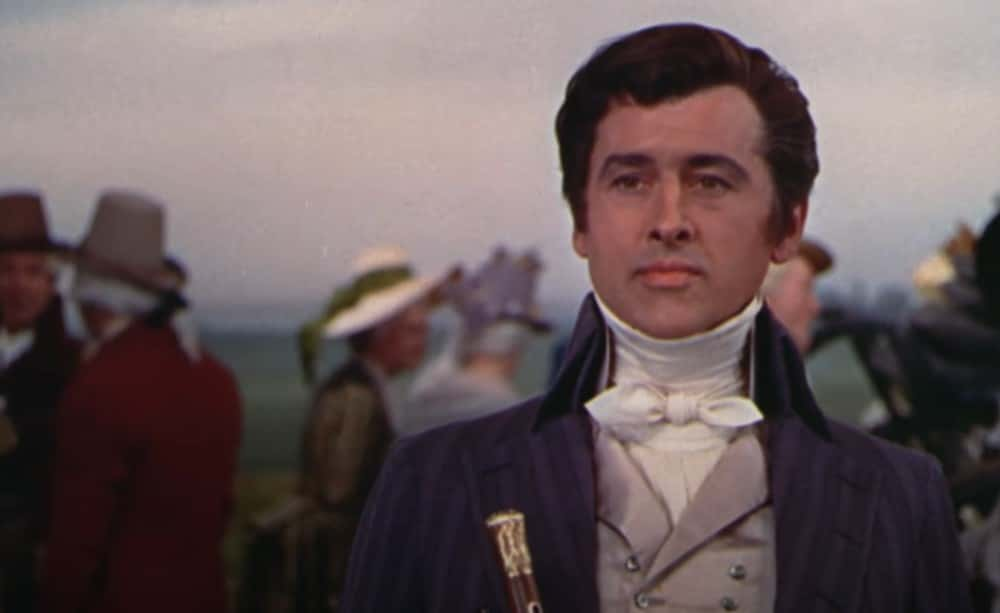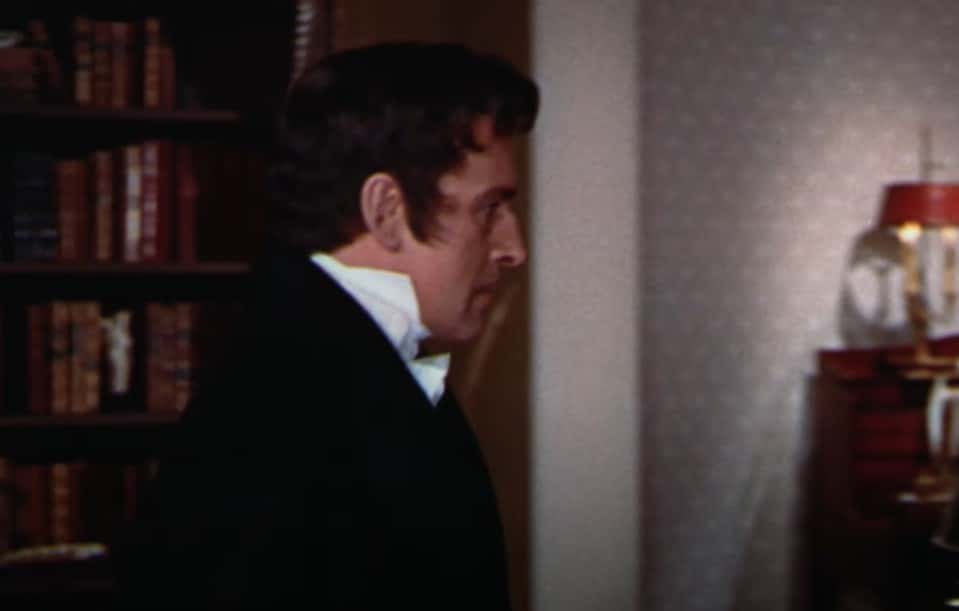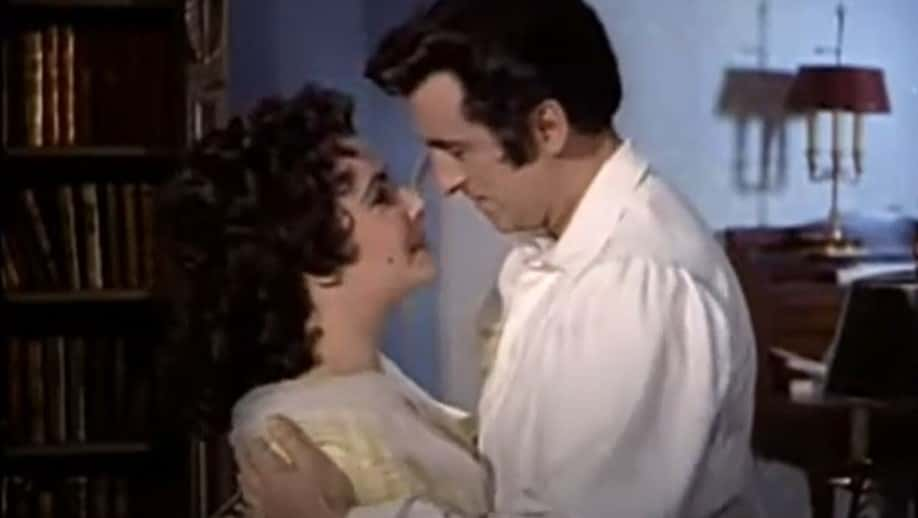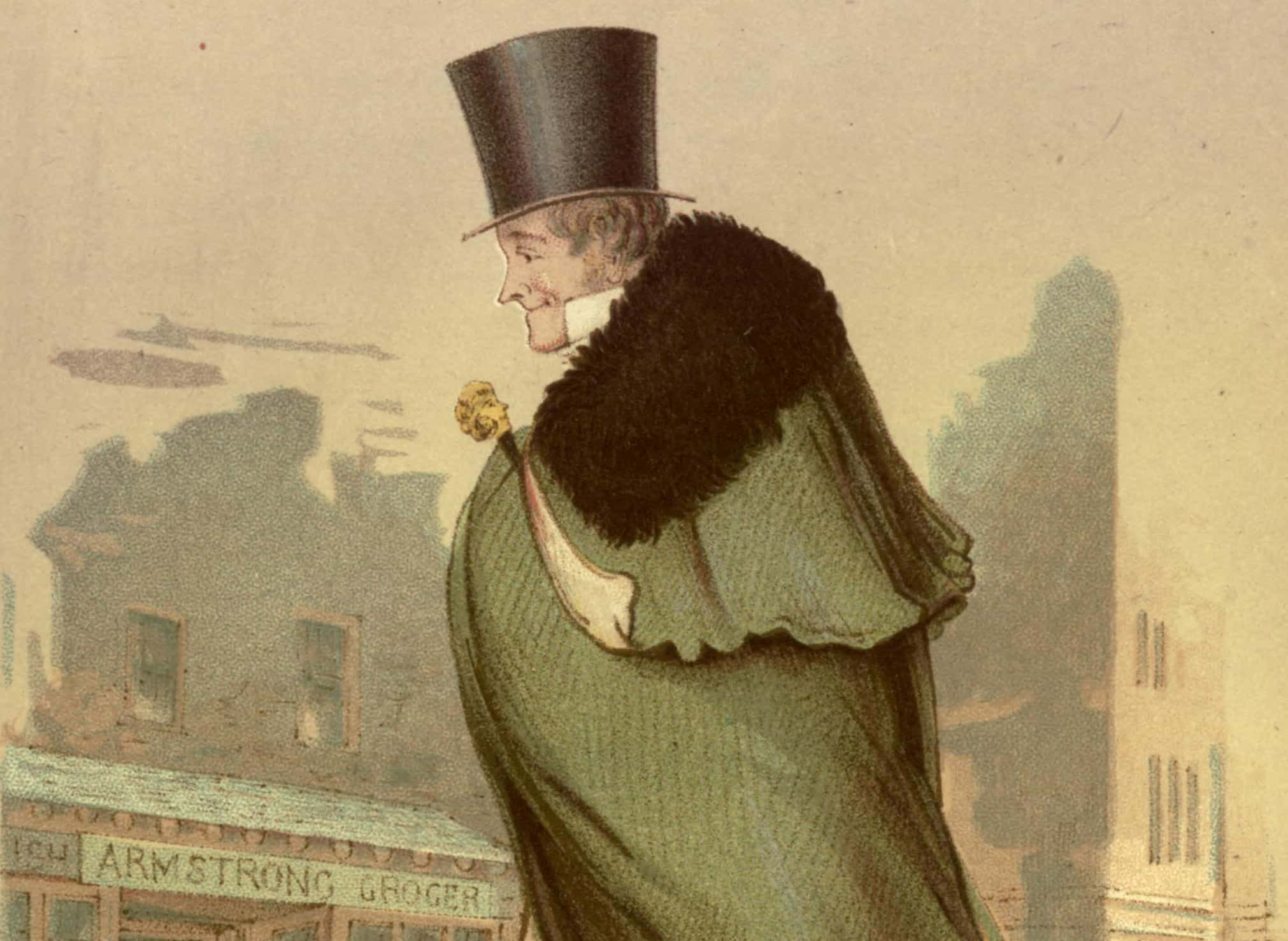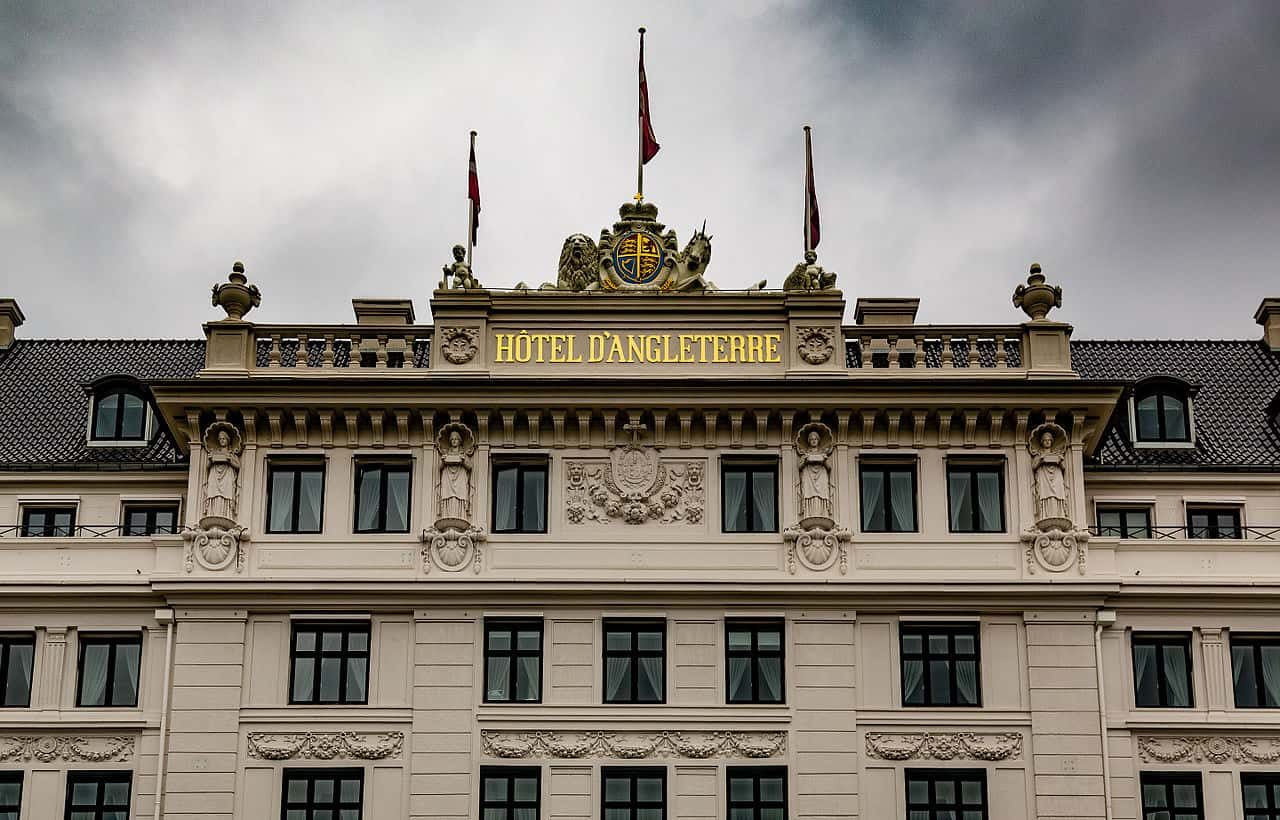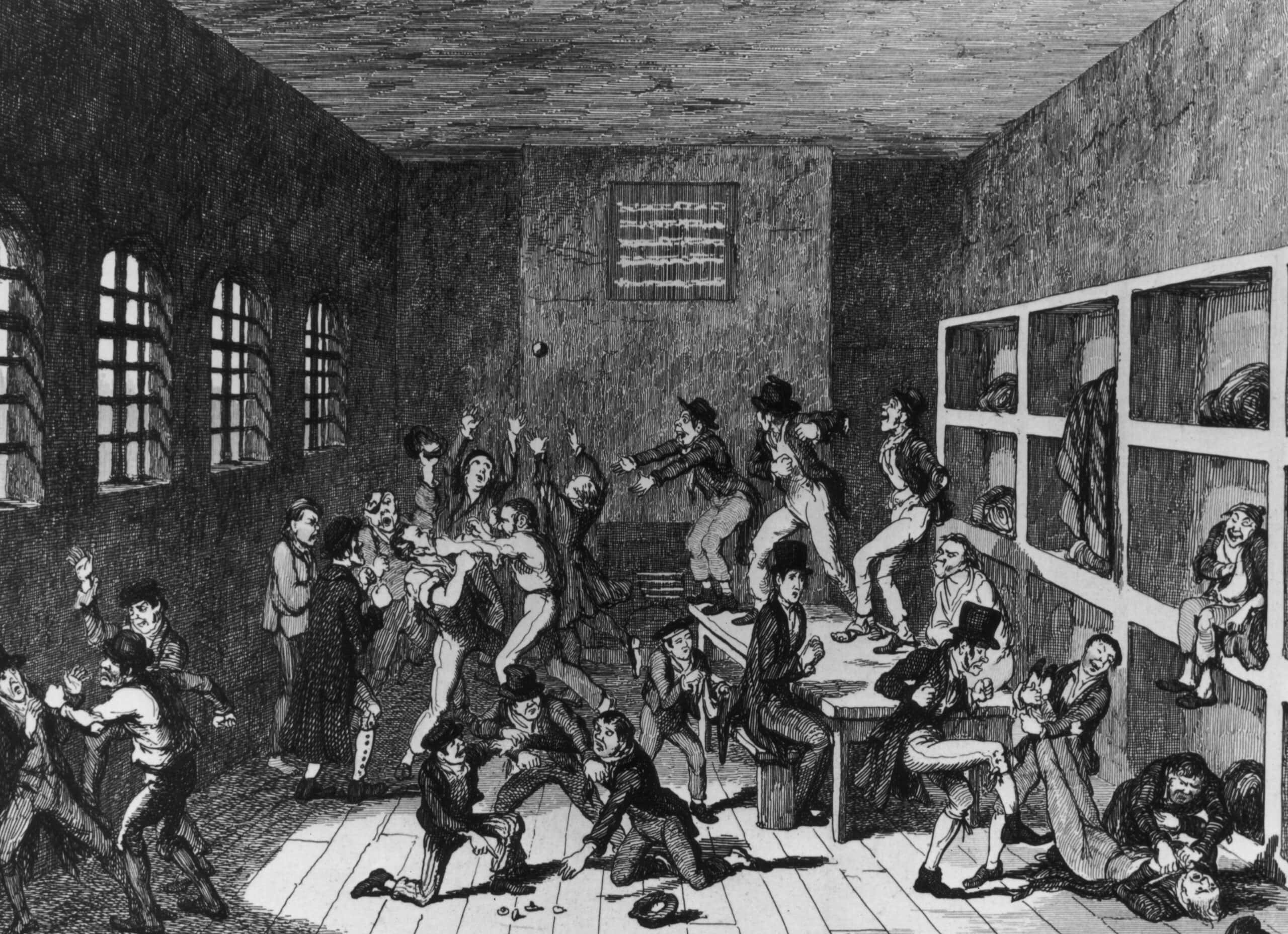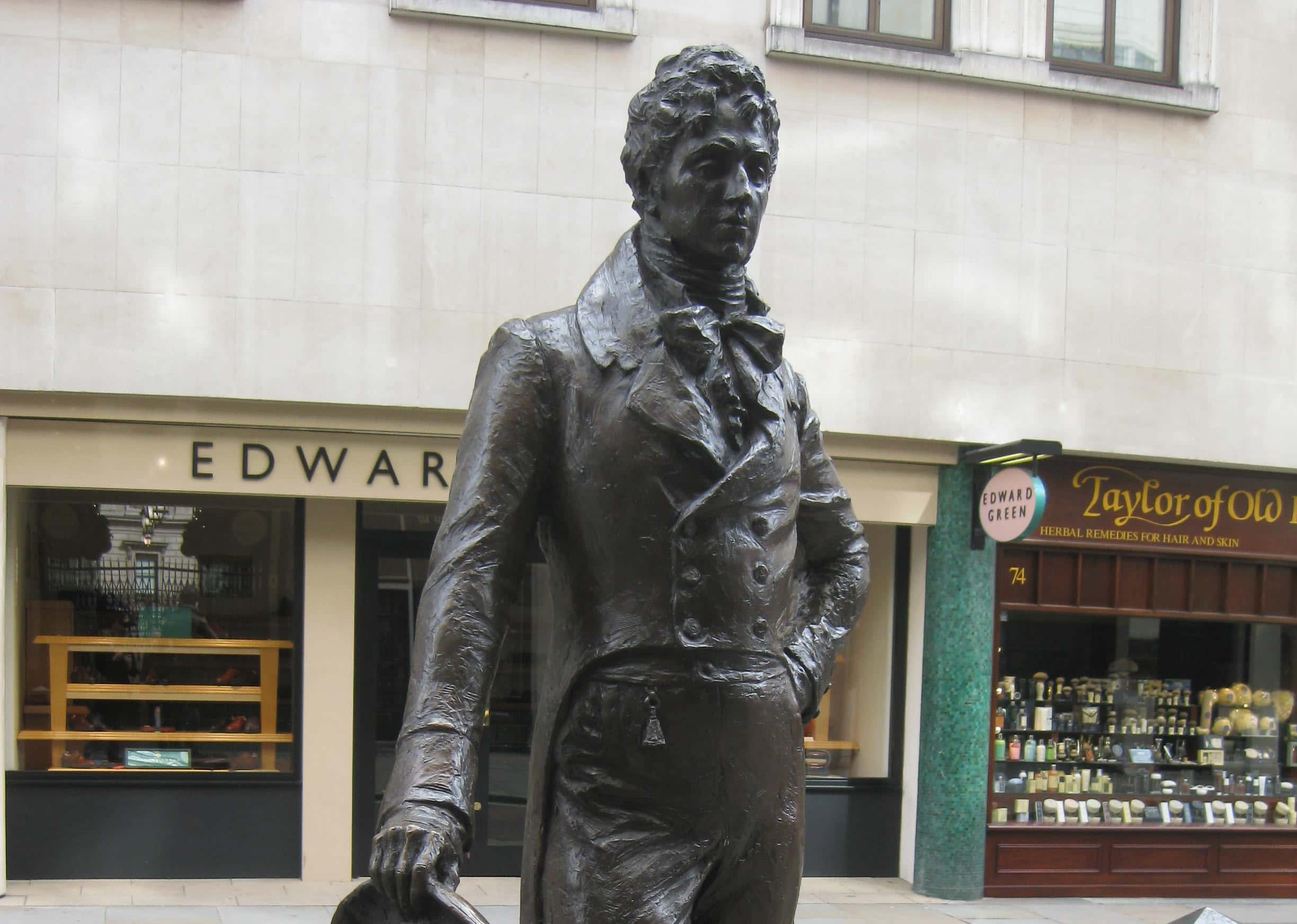He had the looks, the clothes, the wit, the charm—-he had everything. Beau Brummell was a fashion god in Victorian London, showing the way for a sleeker, classier male ideal. Every man wanted to be him, and every woman wanted to be with him. But quickly—far too quickly—it all went away. Here’s the inside scoop about Beau Brummell, London’s greatest fashion icon.
1. His Family Struggled
George Bryan Brummell was born in London on June 7, 1778, the youngest son of Jane and William Brummell. With no connections to nobility, the Brummell family worked their way up from nothing on the back of their grandfather’s efforts. The older William Brummell, working as a valet, managed to secure a clerical position for his son at Her Majesty’s Treasury. George’s father took it from there.
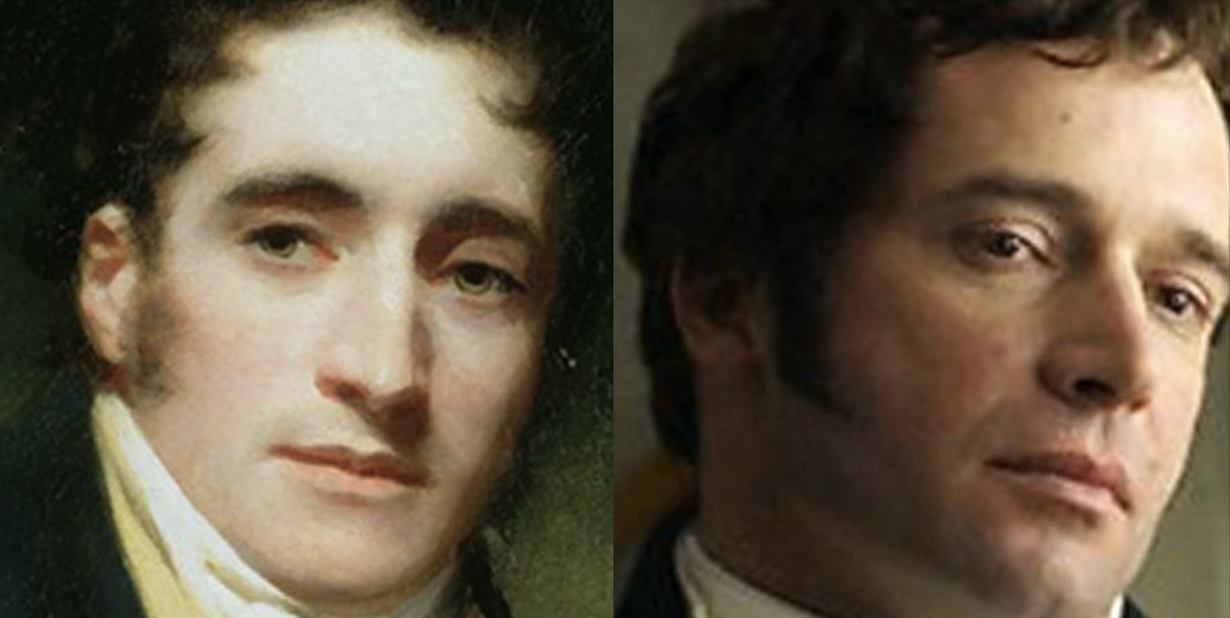
2. They Had Great Expectations
William provided Jane and his sons a comfortable middle-class life as the Private Secretary of the Prime Minister—but he wanted more for his son. He wanted Brummell to become a gentleman, one of the highest in the land. And the way he attempted to achieve this plan was utterly scandalous. William spread a rumor that George—his own son—was the illegitimate son of Prince Frederick.
Brummell grew up with the weight of those expectations on his shoulders…but he was ready to take the world on.
3. He Was The Most Popular Boy At School
High school can be tough for any kid, but Brummell didn’t let that stop him. Despite his middle-class status, the other aristocratic students knew “Buck” Brummell for his cutting wit and easy charm—and soon he became the star of the show. Everyone knew and loved Brummell, even the teachers. He left Eton for Oxford, already a leader in his own right.
4. He Changed The Fashions For Men
Even as a young man, Brummell demonstrated a real eye for style and fashion that others couldn’t help but notice and fear. As an Etonian, he forever changed the classic uniform by bringing a modern twist to the classic schoolboy cravat—as well as a gold buckle. He took his fashion endeavors further at Oxford by turning away from white stockings and old-fashioned cravats—leading everyone to follow his example.
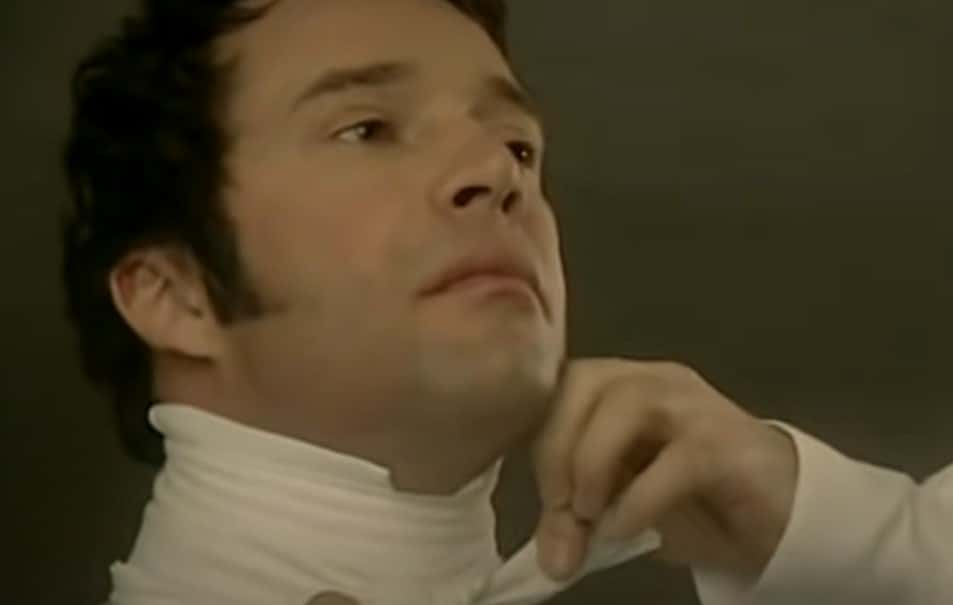 Beau Brummell: This Charming Man (2006), BBC
Beau Brummell: This Charming Man (2006), BBC
5. He Took University By Storm
Brummell brought all his wit and charm to Oxford’s Oriel College, making a host of powerful friends along the way. He changed the way Oxford fashion with his commitment to dressing well, and even managed to flex his intellectual superiority, giving the future college provost a run for his money at a Latin Verse competition. But Brummell lacked something the other men around him had in droves.
6. He Joined The Army
At 16, Brummell already had big plans for his future—but one thing was missing. He didn’t have enough money to make his dreams happen. Joining the Tenth Royal Hussars seemed like the right thing to do, so in 1794, he became the lowest-ranking cornet in his brigade. The Hussars, Prince George’s own regiment, gained fame for their elaborate outfits and hard partying, making it the perfect place for Brummell.
7. He Befriended The Prince Of Wales
Though Brummell first met Prince George at Eton, their friendship blossomed during his army service under the prince’s own command. Prince George couldn’t help but marvel at the sharp intellect and humor of the new recruit, who soon had the higher-ups wrapped around his little finger. Before long, Brummell had the Prince of Wales under his spell, too.
8. He Charmed His Way To The Top
Brummell’s popularity with his seniors started to have a noticeable effect. He had privileges that no one other cornet in his regiment had. As Prince George wrote in his memoirs, “He was allowed to miss parade, shirk his duties and, in essence, do just as he pleased". He also raked in the promotions, and by 1796, he earned the rank of “captain”—but the jump came with a dark side.
His former companions grew jealous of him—and that wasn’t the end of his difficulties in the army.
9. He Nearly Ruined His Beautiful Face
The worst incident happened due to Brummell’s own error. After a long day of performing his duties and modeling his army outfit on Hussars, he made a fatal mistake—he lost control of his mount. He flew into the air, knowing that the pain would hit him any moment. What he didn’t foresee was the lingering pain of messing up his lovely profile, which was forever dented by the broken nose.
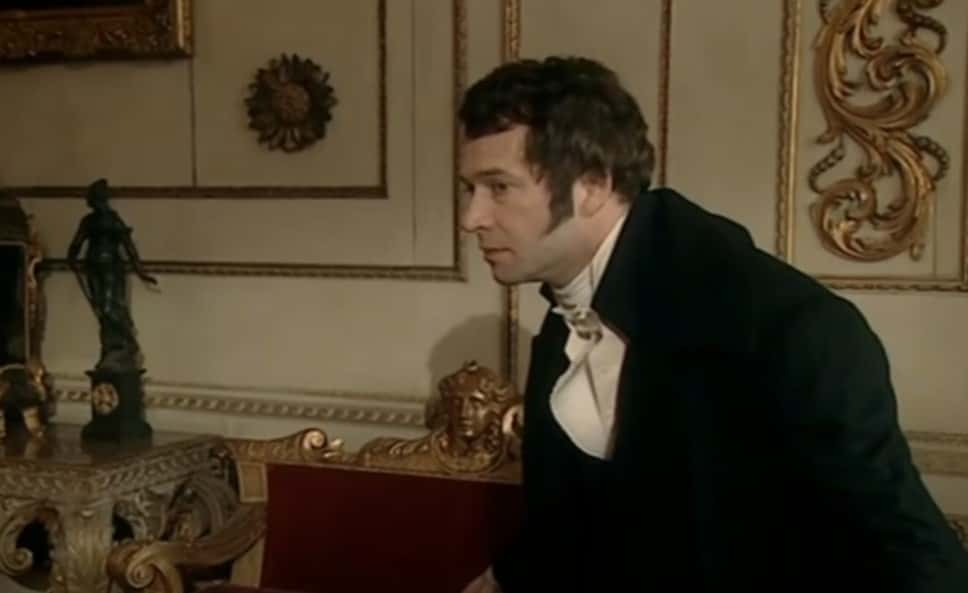 Beau Brummell: This Charming Man (2006), BBC
Beau Brummell: This Charming Man (2006), BBC

History's most fascinating stories and darkest secrets, delivered to your inbox daily.
10. He Dodged The Draft To Manchester
Brummell’s army journey came to a sudden halt when he discovered where the Hussars were to serve next. It was the city of Manchester, and the reason he refused to go was truly ridiculous. Brummell felt that Manchester was beneath him. So, when he heard the news, he immediately sold his commission so that he could stay in London, the center of culture and civilization.
He only needed some money to start making some real noise.
11. He Inherited A Small Fortune
Brummell soon got the money he needed—his father left him a hefty sum of 40,000 pounds as an inheritance. Finally, Brummell had the means to make his own way in London. He set up a house on Chesterfield Street in Mayfair and prepared himself a new wardrobe from the finest materials and the best tailors. London society wouldn’t know what hit them.
 Beau Brummell: This Charming Man (2006), BBC
Beau Brummell: This Charming Man (2006), BBC
12. He Took Care With His Money
Part of being a man in London society meant participating in the gambling clubs and betting circles. This presented quite the risk to Brummell and his limited budget. Luckily, he managed to forgo any of those “manly” pastimes without lifting the eyebrows of the lords around him—keeping his wallet and his livelihood safe.
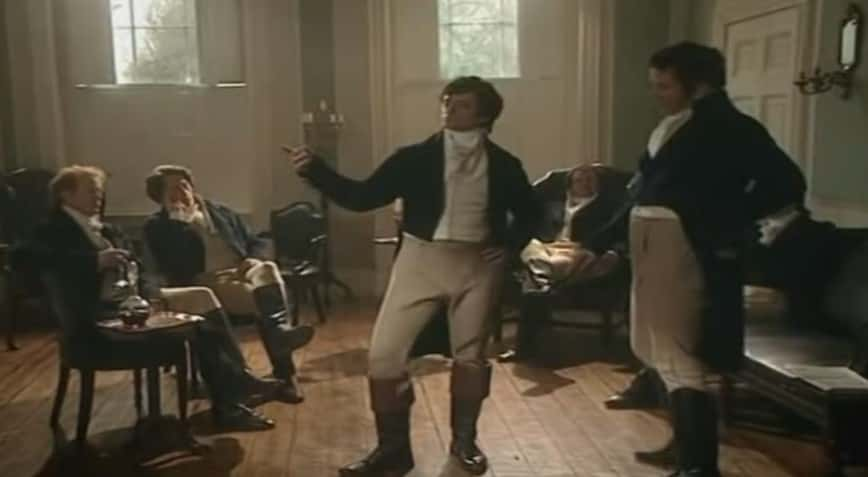 Beau Brummell: This Charming Man (2006), BBC
Beau Brummell: This Charming Man (2006), BBC
13. He Set The Fashion Standard
And what was Brummell’s livelihood? He was the town’s trendsetter, the man who dressed to impress—Brummell became the leader of fashion among the high-born men. All the money that he wasn’t gambling with went towards his tasteful wardrobe, doing away with bright colors in favor of fine fabrics and masterful craftsmanship. London quickly followed suit.
14. He Owned His First Season
His first season in London cemented his place at the top of the social hierarchy. With the Prince of Wales at his side, his elegant style, and his razor-sharp wit, everyone wanted to know more about Brummell, who quickly earned the nickname “Beau". Everyone wanted him at their parties or balls, and everyone wanted his advice. Brummell had finally made it.
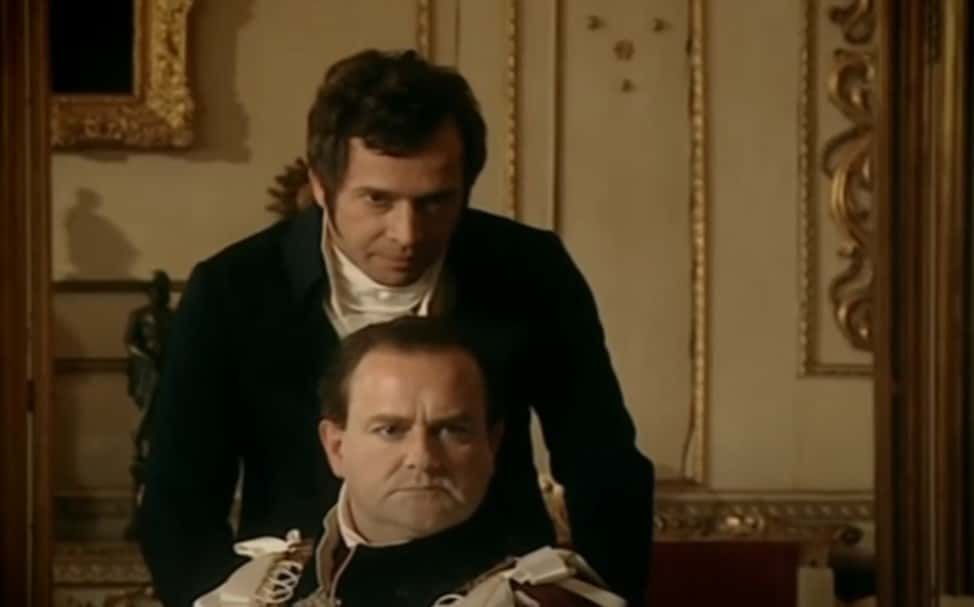 Beau Brummell: This Charming Man (2006), BBC
Beau Brummell: This Charming Man (2006), BBC
15. He Guarded His Reputation
There was a dark side to Brummell’s quick come-up. He lived in fear of losing his status, and protected it fiercely. Brummell realized that the key to his success was his reputation for fashion—a reputation that he protected fiercely. Instead of trusting the delicate folds of his famous neck cloth to one tailor, he made a point to frequent several different businesses across London. That way, no one could claim that their style made Brummell famous—his style was his alone.
16. He Started The Dandy Movement
Beau Brummell became the prototype for a class of individuals that would eventually overrun the ton—the dandy, a man who balanced perfect style with cutting wit. Soon, men dressed like Brummell flooded the balls and parties, doing their best to mimic his style and attitude as closely as they could. The colorful Georgian gentleman was a thing of the past—the more-muted dandy was the way of the Regency future.
17. He Obsessed Over Cleanliness
Style wasn’t Beau’s only form of obsession––Brummell also became preoccupied with his own personal cleaning habits. He dedicated hours to the brushing of his teeth, his shaving routine, and his daily baths. The rest of the fashionable world caught on quickly, adopting his habits like they adopted his fashion sense. The prince even made himself at home in Brummell’s dressing room to witness his hygiene practices for himself.
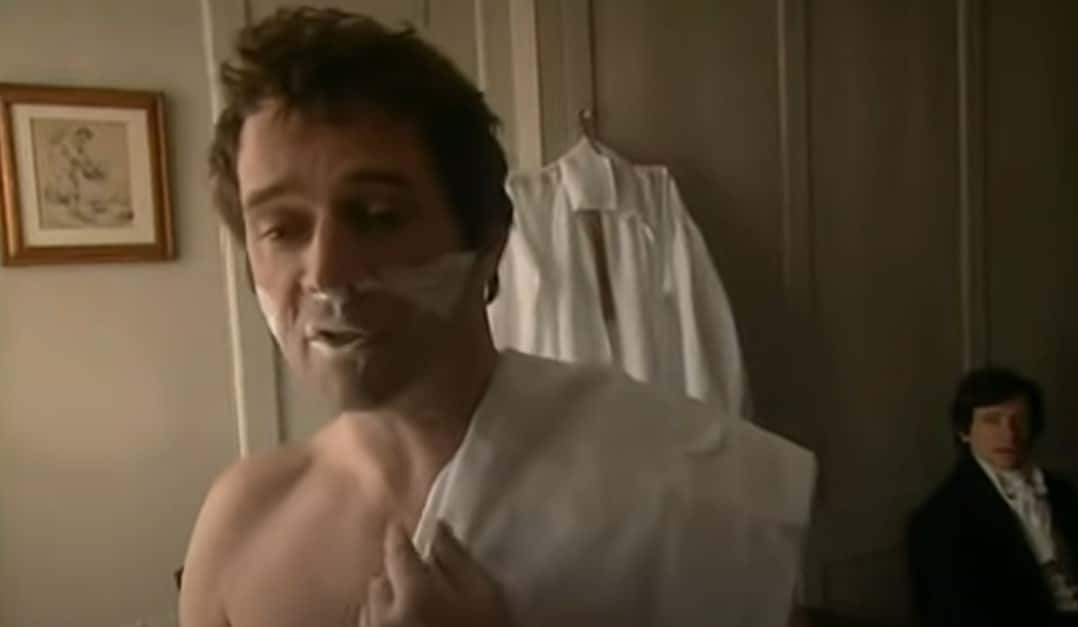 Beau Brummell: This Charming Man (2006), BBC
Beau Brummell: This Charming Man (2006), BBC
18. Everyone Feared His Sharp Wit
Brummell knew exactly how to wield his words like weapons, tearing down whoever stood in his way. On one occasion, the Duke of Bedford went to consult Brummell on the matter of his new coat. Brummell, with a cool and scrutinizing eye, finally exclaimed with disdain, “Bedford, do you call this thing a coat?”
It wasn’t long before Brummell’s penchant for insults landed him in trouble.
19. He Perfected The Art Of "Cutting"
Despite being an untitled gentleman in the midst of society’s most powerful lords and ladies, Brummell’s popularity brought him the power to make or break a person with merely a turn of his head. Called “cutting,” he could refuse to acknowledge a person right in front of him in a public setting, destroying their reputation as a result. Few wanted to make an enemy of him…or so he thought.
 Beau Brummell: This Charming Man (2006), BBC
Beau Brummell: This Charming Man (2006), BBC
20. He Allegedly Made The Prince Cry
The Prince of Wales remained one of the few men too powerful for Brummell to threaten with his social standing––but that didn’t mean their friendship didn’t experience its own tensions. One time, the prince apparently “began to blubber when told that Brummell did not like the cut of his coat". It had a devastating side effect. Growing jealous of Brummell’s popularity, the prince found himself distancing from his old friend––a decision that would cost Brummell dearly.
21. He Made Friends With High-Powered Nobles
Even if Prince George was taking a step back from Brummell’s side, many others rushed forward to fill in that absence. Nobles like the Duke and Duchess of York, Bedford, and Devonshire became Brummell’s closest friends. Brummell became very close with many of the highest ladies in the ton, but one remained dearest to his heart.
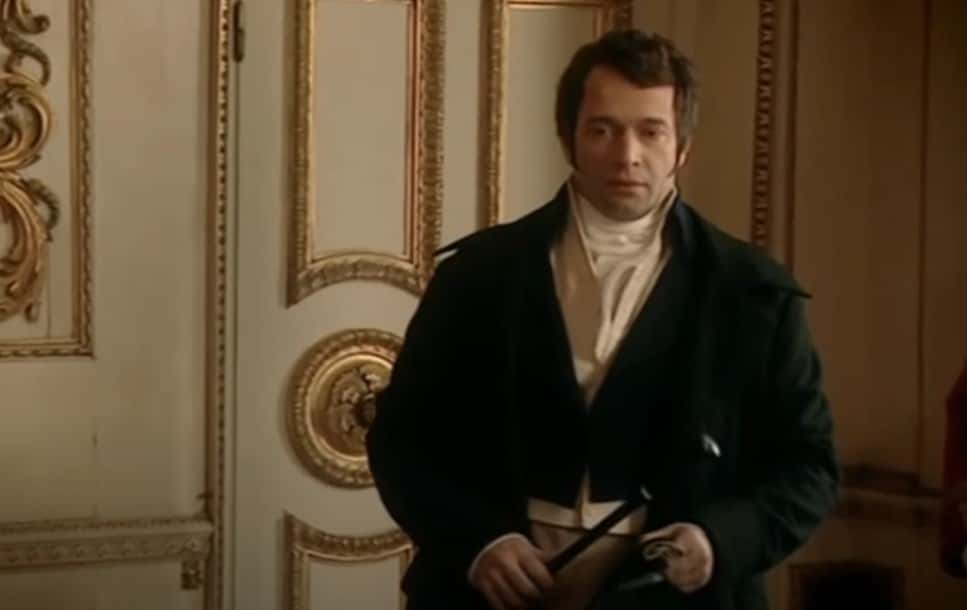 Beau Brummell: This Charming Man (2006), BBC
Beau Brummell: This Charming Man (2006), BBC
22. He Adored The Duchess of York
Brummell and Frederica, the Duchess of York, became as close as bosom buddies over the years. A society leader in her own right, Brummell admired the lady’s ability to organize the most outrageous house parties. They also shared a love of animals––Brummell even gifted the duchess with a small dog named Fidélité. Brummell and Frederica remained loyal to one another over the years––even when everything fell apart.
23. The Lifestyle Went To His Head
On top of the world, it seemed like nothing could bring Brummell down––except himself. But after all those careful years of guarding his modest inheritance, the pressure to attend the many gambling clubs that his friends frequented grew stronger. Finally, enough was enough––Brummell caved. It was a fatal mistake. He entered the club scene, convincing himself that nothing would go wrong.
Well, it would cost Brummell in a big way.
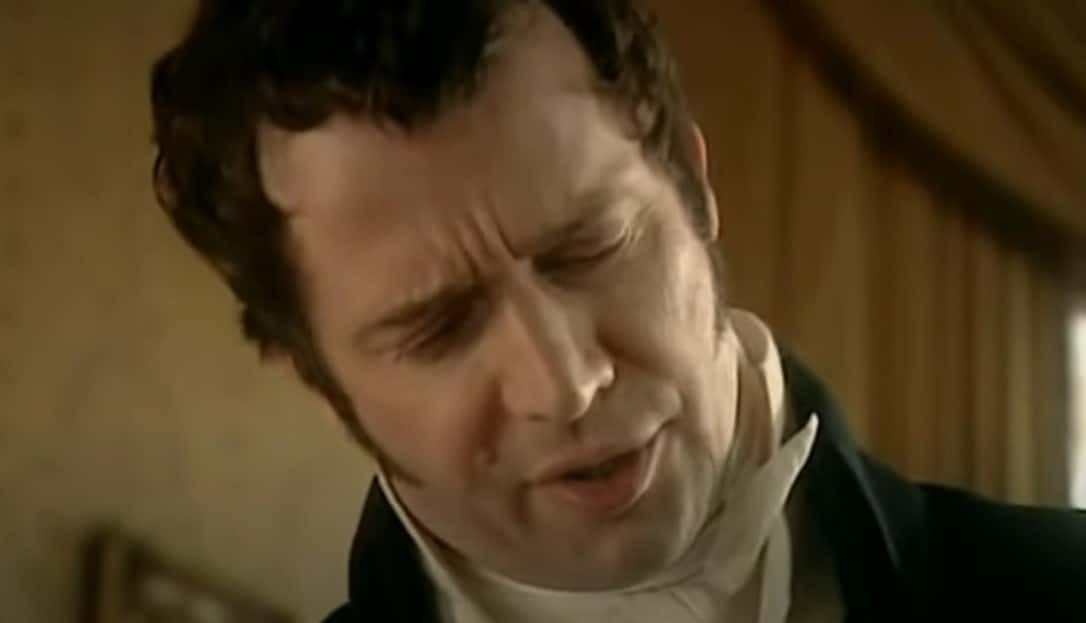 Beau Brummell: This Charming Man (2006), BBC
Beau Brummell: This Charming Man (2006), BBC
24. He Frequented The Coolest Clubs
Of course, this is Beau Brummell we’re talking about––if he was going to spend all of his money on gambling, then he was going to do it in style. He joined Watier’s, Brook’s, and White’s, the hottest gentlemen’s clubs around. Though he spent more than he could afford, his reputation allowed him to open a line of credit that kept him afloat––for the moment.
25. He Dominated White’s And Watier’s
Brummell became such a fixture at White’s that his presence gained notoriety. He liked to sit by the big bow window so much so that the owners renamed it the Beau window in his honor. Meanwhile, he became the authority of Watier’s, making sure that the food served met the quality that he expected for himself and his friends.
 Beau Brummell: This Charming Man (2006), BBC
Beau Brummell: This Charming Man (2006), BBC
26. He Insulted The Prince
In 1813, the situation between the prince and Brummell finally came to a dramatic head. Prince George, fed up with Beau’s sauntering ways and callous words, ignored him without a word while offering greetings to each of his friends. Watching the monarch leave, Brummell turned to his companion Alvanley and asked, “Alvanley, who is your fat friend?”
And with that, Brummell cut ties with the one man who could have saved him.
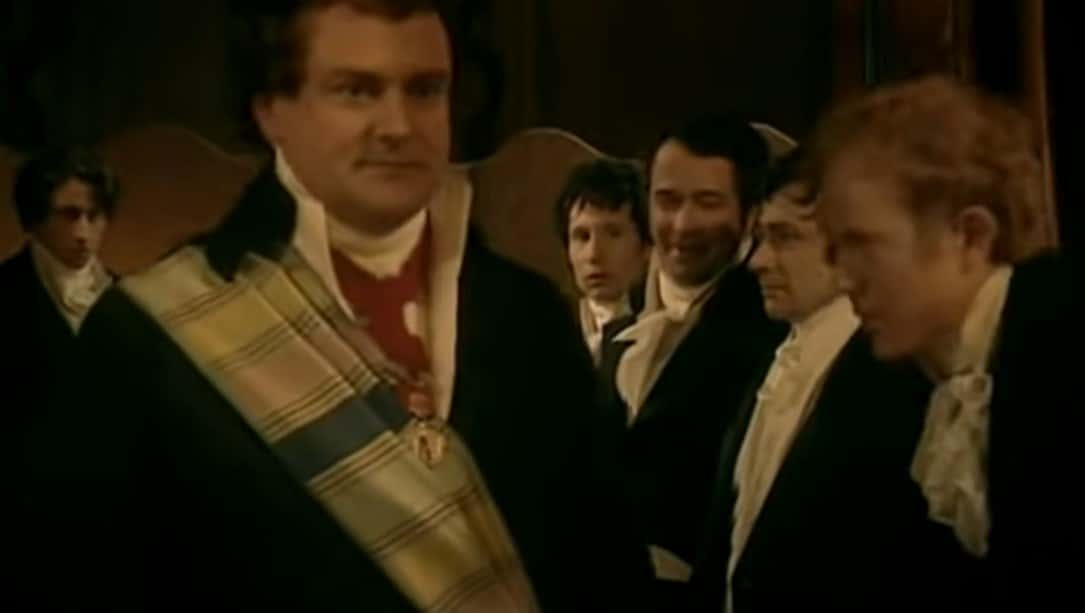 Beau Brummell: This Charming Man (2006), BBC
Beau Brummell: This Charming Man (2006), BBC
27. His Gambling Debts Increased
Now a card-carrying member of London’s coolest gentlemen’s clubs, Brummell soon developed a real taste for the gambling life. It wasn’t long before his debts began to mount up faster than he could pay them off. But that didn’t stop him from betting more and more of his inheritance away. It wasn’t long before he made a bet that he couldn’t pay back.
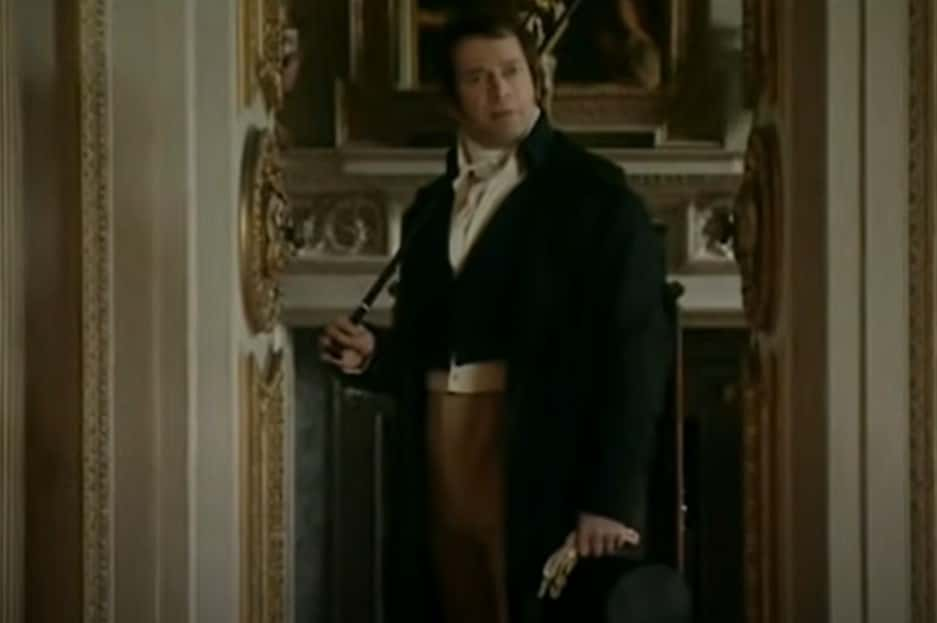 Beau Brummell: This Charming Man (2006), BBC
Beau Brummell: This Charming Man (2006), BBC
28. He Struggled To Stay Afloat
Brummell lost his last bet to Richard Meyler in 1815––drumming up a debt well beyond his means. Though he continued to borrow money and gamble it away, Meyler waited for Brummell to pay him back. After all, Brummell was a gentleman who paid back his “debts of honor”––right? But Meyler’s patience came to an end when he discovered that Brummell planned to renege his debt.
Meyler decided to strike back.
29. Richard Meyler Ratted Him Out
Meyler’s revenge was swift and serious. On May 16, 1816, Meyler sat in the middle of White’s and told anyone who would listen to him that Brummell had failed to honor his debts. And because it was about Brummell, everyone paid attention––his creditors, his lenders, and worst of all, his friends. Overnight, the entirety of London had turned their backs towards Beau Brummell, their former hero.
Brummell had to escape.
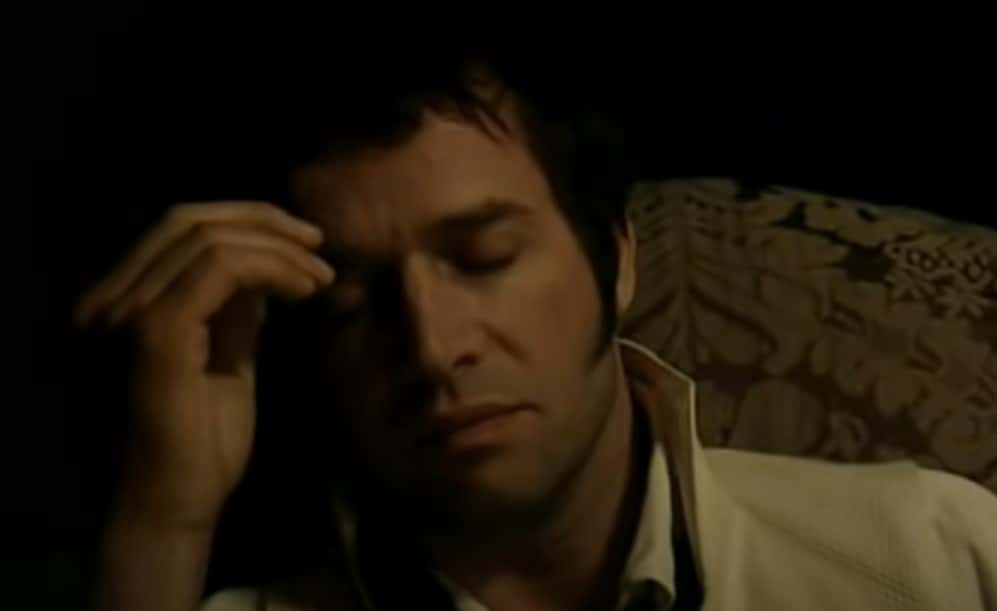 Beau Brummell: This Charming Man (2006), BBC
Beau Brummell: This Charming Man (2006), BBC
30. He Fled To France
With creditors now breathing down his neck for money that no longer existed, Brummell did the one thing he could to survive––he fled that very night. After spending the evening at the theater, he snuck away during the night all the way to Dover and made his way to the port city of Calais in France, as far as he could get without a passport. There, no one would recognize him––or his debts.
31. They Sold His Property
The creditors worked swiftly and severely. As soon as they realized that Brummell was gone, they went for the next best thing—his property. The auction of Brummell’s clothes, spirits, and valuables drew a massive crowd, most of whom were hungry for gossip about London’s fallen idol. In the end, the auction raised only £1000—leaving Brummell stuck where he was.
 Beau Brummell: This Charming Man (2006), BBC
Beau Brummell: This Charming Man (2006), BBC
32. He Charmed Calais
Meanwhile, Brummell made himself at home in small-town France, delighting all of the locals with his refined wit and eloquence. “We used to call him le Roi de Calais [the King of Calais],” said one shopkeeper fondly, “we were sad to see him go". He did a complete 180 while in France. He made it a habit to visit the poor and earned a reputation for paying vendors up front.
Brummell had learned his lesson the hard way.
33. He Entertained Old Friends
Many of Brummell’s closest noble friends did not give up on their former hero. The Dukes and Duchesses of York, Beaufort, and Wellington, as well as Lord Alvanley, all maintained close contact with Brummell and even dropped by regularly at his Calais address. As usual, Brummell lay the charm on thick for his friends, leaving their hearts—and their wallets—open.
34. Rumors Circulated About His Memoirs
It was difficult for Brummell to maintain his status as a giant over London all the way in nowhere, France…but even from that distance, he still caught the public’s fascination with talk about his memoirs. He spent much of his days in Calais writing them down—only to keep them to himself at Princess Frederica’s behest. Soon, the excitement settled down…and Brummell’s status went with it.
35. He Lived Off Others
Without access to his own cash, Brummell kept himself comfortable by borrowing from his generous noble friends, giving empty promises of paying them back. He gained a reputation around Calais for never leaving a debt unpaid with the storekeepers and tradesmen—but that courtesy didn’t necessarily extend to the bankers and lenders in his life.
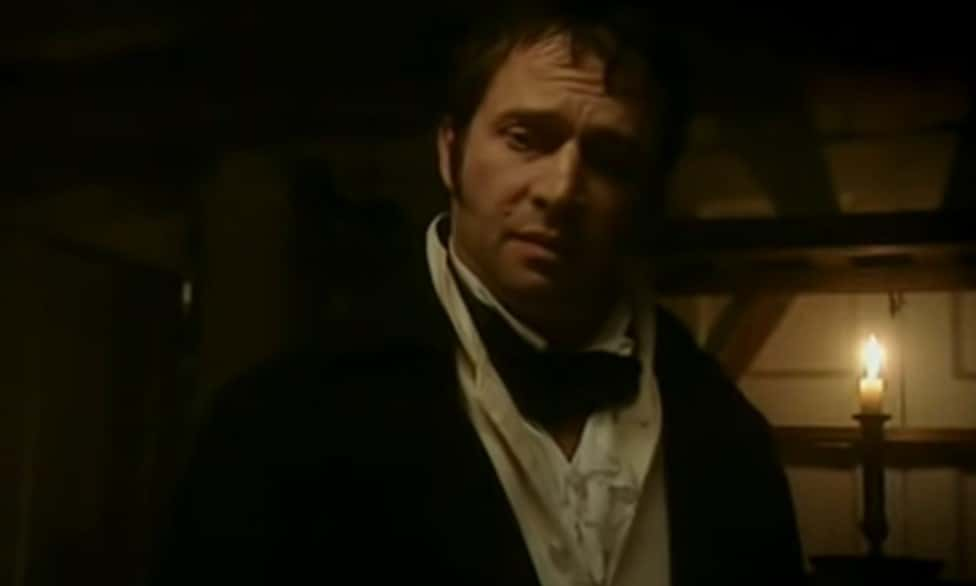 Beau Brummell: This Charming Man (2006), BBC
Beau Brummell: This Charming Man (2006), BBC
36. His Debts Continued To Mount
Though Brummell’s friends seemed to have endless patience for the man’s whims, the bankers weren’t necessarily as forgiving. Soon, Brummell found himself in the same position as before—with ever-increasing debts and no real way to pay them off. For a while, he was able to maintain the balance with his endless charm—but soon, things would come to a head.
37. He Lost His Friend
In 1827, The Duke of York passed on, leaving Brummell without one of his greatest supporters and financiers. For Brummell, this was both a personal tragedy and a fiscal disaster. The Duke’s support lent the man more credibility with the bankers and other lenders. Without his protection, Brummell was left vulnerable to all the creditors that he wronged—his neck was on the line.
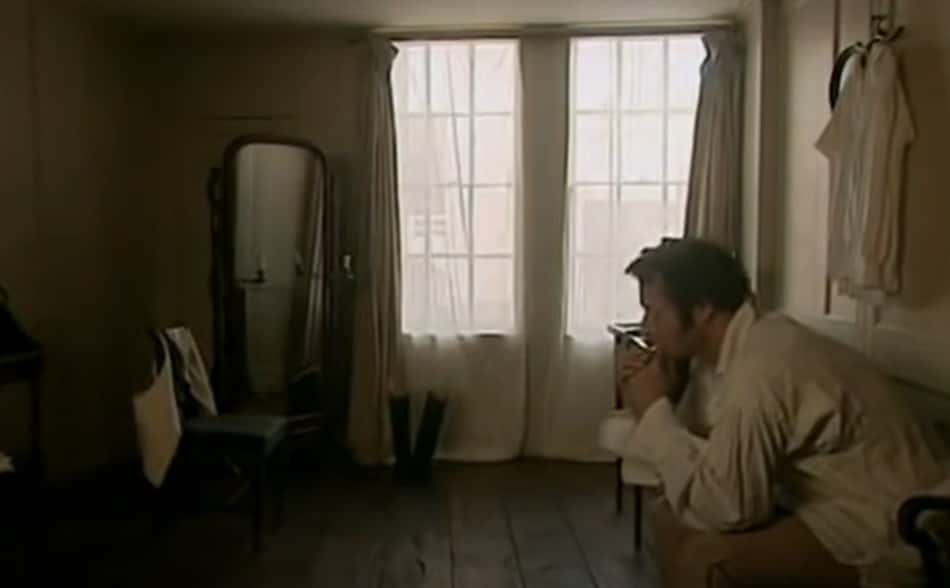 Beau Brummell: This Charming Man (2006), BBC
Beau Brummell: This Charming Man (2006), BBC
38. Creditors Came After Him
After the Duke’s untimely demise, many of Brummell’s creditors started closing in on him, wanting their money back. Brummell didn’t know where to turn. He reached out to his remaining friends to help him, making a heartbreaking plea. He wrote: “I am sadly alarmed lest some overwhelming disaster should befall me,” he wrote. Luckily, help was on its way—from the most unlikely of sources.
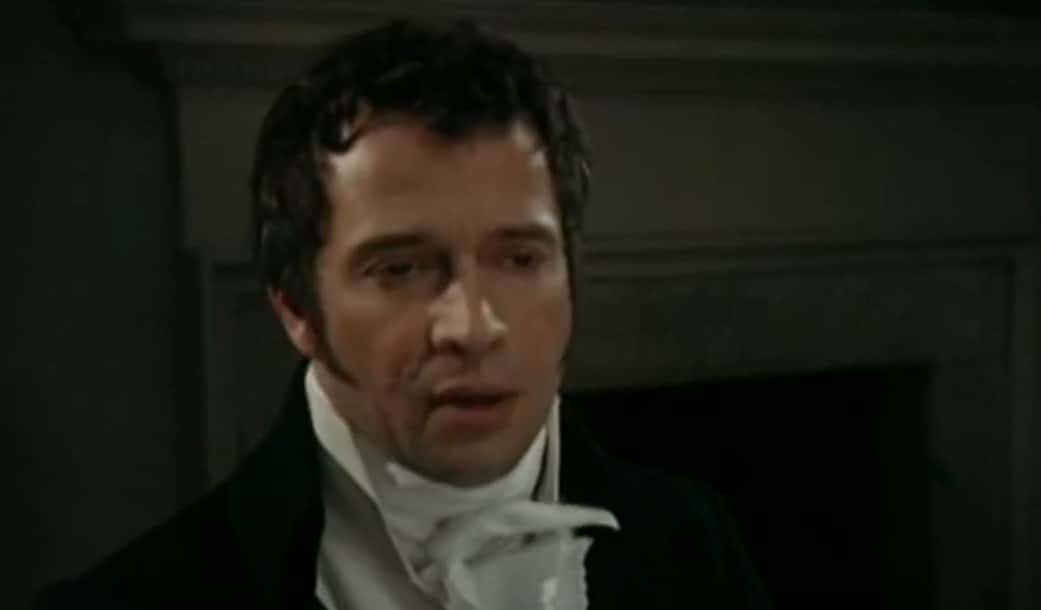 Beau Brummell: This Charming Man (2006), BBC
Beau Brummell: This Charming Man (2006), BBC
39. The King Appointed Him To Consul
Brummell’s friends managed the impossible—they managed to convince His Majesty’s government to give Brummell a paid position in France as Consul, despite the long-standing animosity between the king and the fashion guru. As Consul, Brummell would make £400 a year and would have to relocate to Caen. Brummell couldn’t leave soon enough.
40. He Started Feeling Sick
On the outside, life seemed good to Brummell in Caen—he made friends with his landlady, learned French, and charmed the townsfolk by the way he would tiptoe across the street to avoid getting mud on himself. But inside, things were falling apart. Brummell’s health began to fail as syphilis started ravaging his body. It was a problem he could no longer ignore.
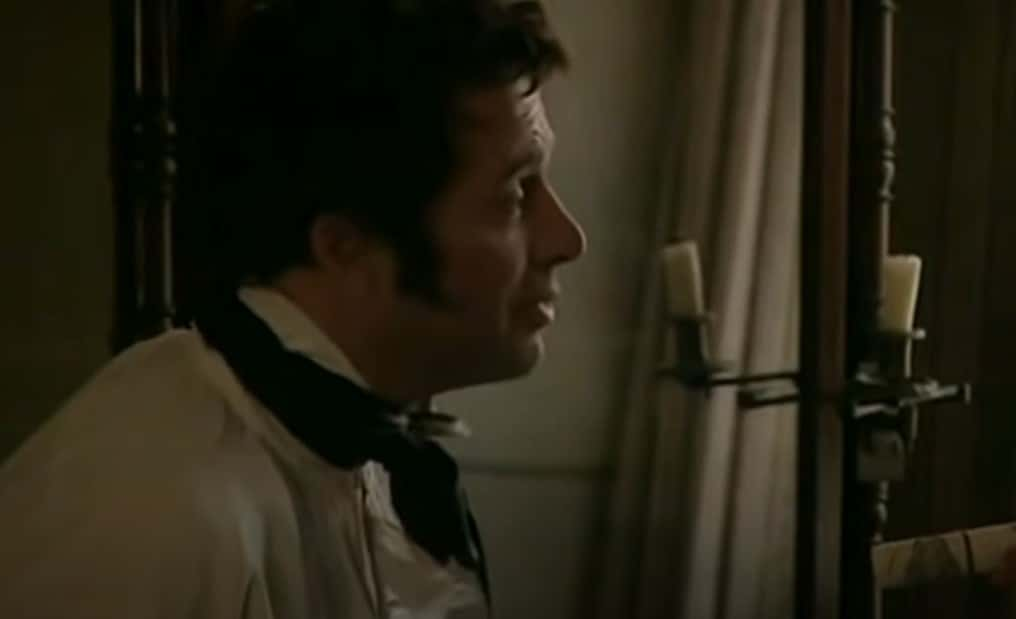 Beau Brummell: This Charming Man (2006), BBC
Beau Brummell: This Charming Man (2006), BBC
41. He Came Up With A Plan
Brummell had an idea for how he could get back on top of the world—and get more money doing it. He messaged Lord Palmerston about his current position. There’s no need for a Consul in Caen, he argued, I could be doing much more important work elsewhere if you gave me the chance. He sent out the letter, not realizing how badly he had screwed himself over.
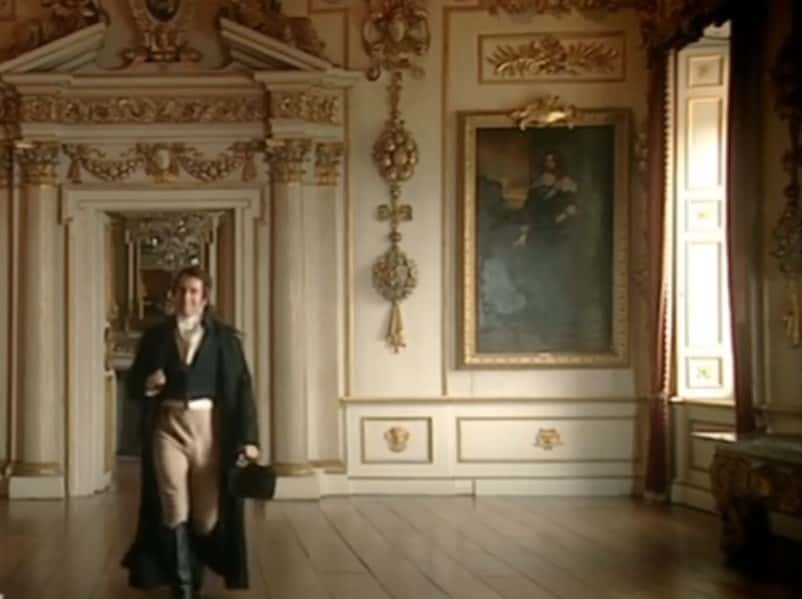 Beau Brummell: This Charming Man (2006), BBC
Beau Brummell: This Charming Man (2006), BBC
42. His Plan Backfired
Lord Palmerston’s response came quickly—too quickly—on March 21, 1832. As it turned out, His Majesty’s government agreed with Brummell’s assessment that there was no need for a Consul in Caen. But that meant they had no more need for Brummell, either. “Your salary will cease on the 31st May,” wrote Lord Palmerston. Brummell had lost the one thing going for him.
 Beau Brummell: This Charming Man (2006), BBC
Beau Brummell: This Charming Man (2006), BBC
43. He Romanced His Landlady's Daughter
With his health declining and his funds desisting, Brummell started to spend more and more time in his own quarters—where he had the opportunity to befriend the teenage daughter of his landlady. Though he suffered depression and migraines from his illness, he still had enough pluck to romance the young woman thoroughly—until it was too late.
44. His Landlady Kicked Him Out
Soon, Brummell’s landlady discovered the love letters he had written to her young daughter—and she was far from pleased. Without hesitation, she kicked the ailing Brummell to the curb, telling him to leave her house at once. Gathering his things, he left her with one last gift: his album of poems from his friends back home. Then, he was out on his own.
45. His Friends Tried To Support Him
Knowing that Brummell was homeless and sick, his friends did their best to make sure he survived. Together, they raised £120 a year for Brummell to live on in relative comfort. Though this was insanely generous, it was almost a fifth of what he had spent on himself while in London. And it couldn’t stop the illness ravaging his body from running its deadly course.
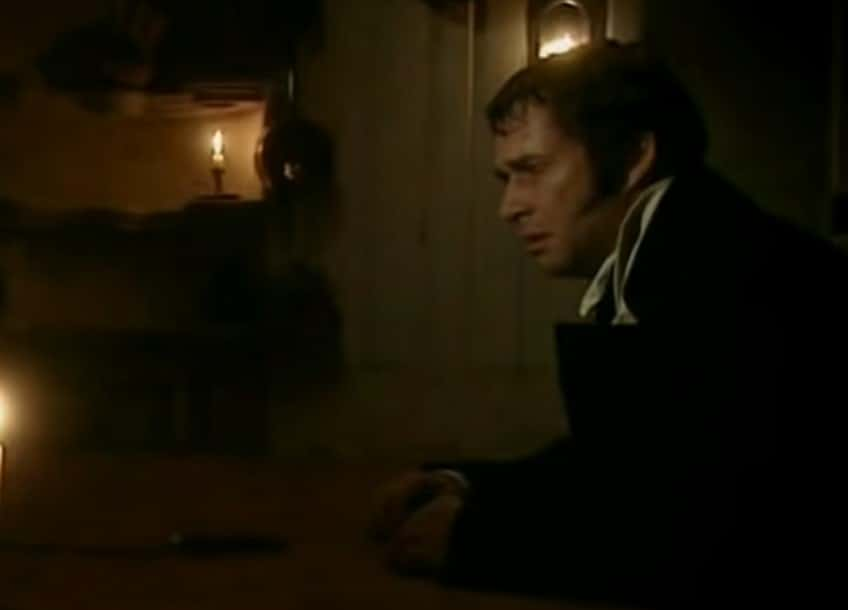 Beau Brummell: This Charming Man (2006), BBC
Beau Brummell: This Charming Man (2006), BBC
46. He Suffered From A Stroke
Though his health had incrementally gotten worse and worse over his years in France—especially after a syphilis diagnosis—things took a dark turn in the summer of 1832. That was when Brummell suffered a massive stroke. Struggling through the paralysis, he checked himself into L’ Hotel d’Angleterre where eventually, he suffered a second and third stroke.
With his body failing him and recovery alluding him, Brummell could no longer fight off his old enemy—the ever-present creditors, wanting their man.
47. His Creditors Threw Him In Prison
In 1834, the unthinkable happened—Brummell’s creditors finally caught up with the man and threw him unceremoniously into a debtor’s prison cell with three others. Brummell, aghast at not being able to dress for the occasion, was incensed at the way he was treated: “Image a position more wretched than mine!” he wrote, “I am surrounded by the greatest villains and have nothing but prison fare!”
48. He Barely Made It Out
Though his friends once again gathered for Brummell’s sake, even they could not raise enough to pay back his debts. They managed to pay for an upgrade of his cell and some basic creature comforts like water and good bread. And by 1835, they managed to convince Lord Palmerston to pay out £200 for his dissolved position. Finally, Brummell was a free man—even if that freedom came at a cost.
 Beau Brummell: This Charming Man (2006), BBC
Beau Brummell: This Charming Man (2006), BBC
49. He Lived Out His Days In An Asylum
By the time Brummell was freed from prison, most of his friends and supporters had moved on or passed on. His last years were marked by extreme poverty and illness. The former fashion guru even resorted to wearing hand-me-downs when he could no longer afford to launder his clothes properly. When his body finally failed him for the last time in 1839, he was broke and alone in an asylum in Caen, the syphilis leaving him confused and jumbled.
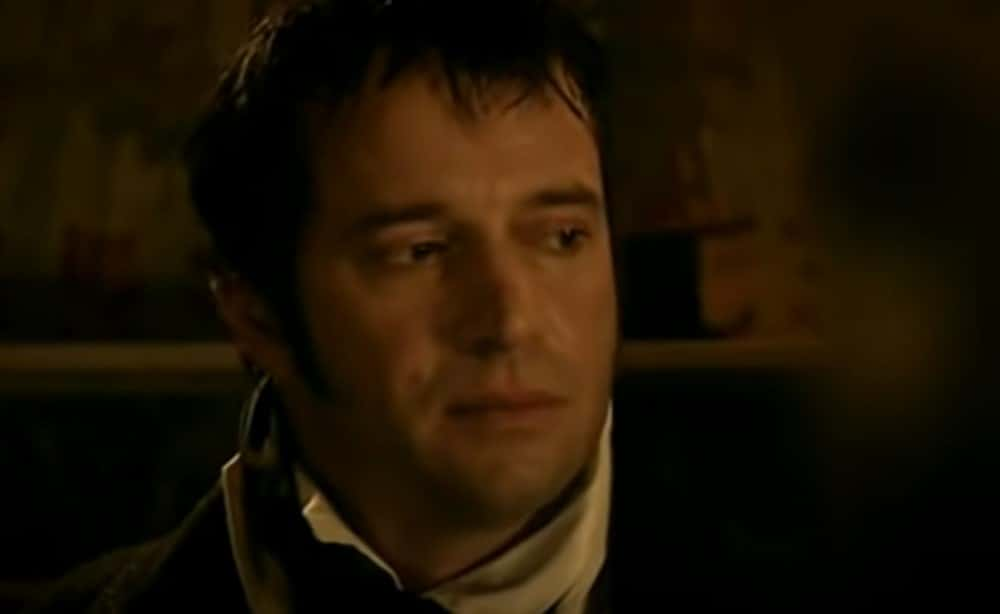 Beau Brummell: This Charming Man (2006), BBC
Beau Brummell: This Charming Man (2006), BBC
50. His Name Became Synonymous With Style
But Brummel’s legacy lived on without him. Back in England, his demise began the rise of “Brummellmania,” where people were quick to bring the legend to life by depicting him in literature and theater for the next several decades. To this day, Brummell’s fashion advice has shaped the way men dress themselves. Beau Brummell might never go out of style.



